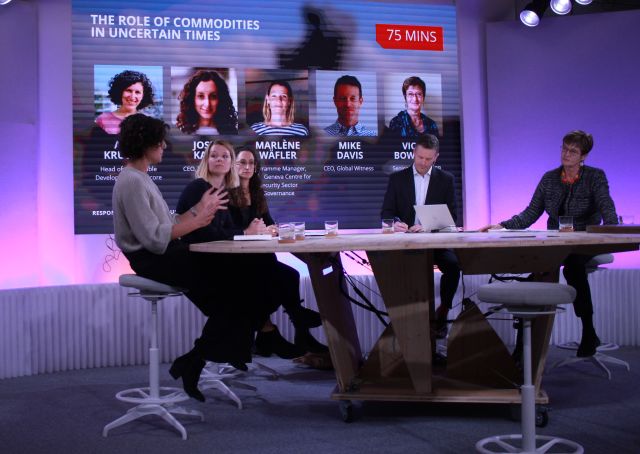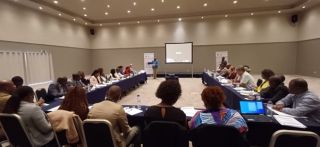Reflections from the event hosted by the Institute for Human Rights and Business: Responsible Business in Uncertain Times

Last week, DCAF spoke in a special one-day event organized by the Institute for Human Rights and Business on “Responsible Business in Uncertain Times: Strengthening Corporate Leadership amidst Global Conflicts.” Hosted by the International Committee of the Red Cross, the event gathered high-level experts, companies, and international organisations.
From discussing the role of technology and business, the impacts of commodities and especially “strategic minerals,” to questions of responsible security management in human rights due diligence, and the responsibilities of finance institution and banks that invest in or lend to companies operating in conflict-affected and high risk areas, the event was a fascinating deep-dive unpacking how businesses are not neutral, and how they need to identify and reduce the risks linked to their operations or supply chain by implementing effective heightened human rights due diligence (hHRDD).
What are our key takeaways?
- First of all, there was a wide-ranging consensus that the issue is not the absence of rules, norms, regulations, tools and guidance. Application of these frameworks by businesses is the main challenge.
- Companies do not need to reinvent the wheel when undertaking heightened human rights due diligence but instead should use existing good practices, tools and frameworks.
- Governments
need to strengthen their leadership and lean into companies to support, guide
but also oblige them to undertake hHRDD. Communities need to be able to
see the benefit of regulations- otherwise, these efforts lose credibility.
- Conflict analysis is essential. Heightened human rights due diligence does not imply simply adding a twist or an extra step to “HRDD as usual.” Companies need to do the work and analyze conflict dynamics in their supply chains and operations.
- There is a high risk that hHRDD can become a “tick the box” exercise for companies. This is dangerous because merely running through the standard motions of hHRDD does not address risks in an effective way. Companies should meaningfully look inward - at their corporate culture, policies and practices - and outward – at their impacts, their interactions with and level of trust from communities, their industry’s legacy. These are all elements that form part of the recipe for a social license to operate.
- Responsible security management is an integral part of responsible sourcing. Indeed, when working and/or sourcing from complex environments, companies have the responsibility to ensure that the security actors around their operations respect the rights of the communities where they operate.
- We do not need to reopen the debate of whether mandatory or voluntary multi-stakeholder initiatives are better or more effective – each approach serves a complementary purpose and has its place in business and human rights
Read the official IHRB post-event briefing here.
With conflicts, violence and tensions on the rise in many contexts, DCAF-ICRC are reflecting on how best to influence and work with companies to implement hHRDD and what it means in term of responsible security. As we look towards a busy fall and of course November’s UN Forum on Business and Human Rights, these conversations will be top of mind. Stay connected with DCAF-ICRC and tune into our newsletter as we plan our engagements in November!




